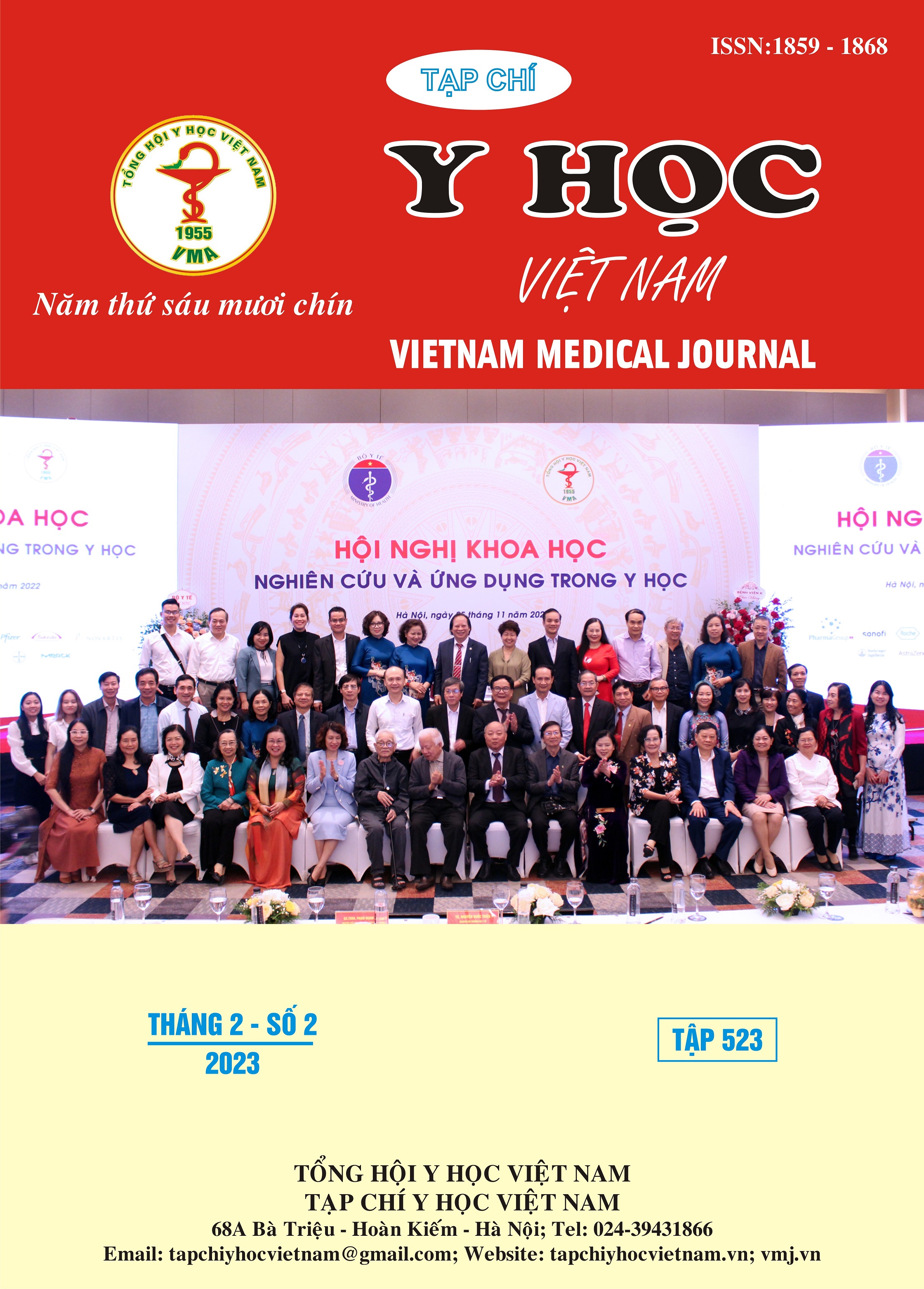ASSESSMENT OF SOFT TISSUE AND RESTORATIVE RESULTS AFTER IMPLANT TREATMENT IMMEDIATELY RESTORE THE FIRST MOLAR MANDIBULAR AT CAN THO UNIVERSITY OF PHARMACEUTICAL HOSPITAL
Main Article Content
Abstract
Background: Immediate implant placement is a method considered by many authors to be cosmetically risky, as alveolar bone healing after tooth extraction can lead to unpredictable changes in the peri-implant tissues, thereby altering structure and gingival contour. Objective: To evaluate the results of soft tissue and prosthetics after immediate implant treatment to restore the first molar mandibular. Materials and methods: A patient over 18 years old came to the Can Tho University of Medicine and Pharmacy Hospital with an indication of tooth extraction for immediate implantation of first molar the mandibular. Sampling method: convenient sampling selected all patients who came to the Department of Odonto-Stomatology, Can Tho University of Medicine and Pharmacy from April 2020 to December 2020 who met the sample selection criteria. Results: At 6 months after surgery, the height of the keratinized gingiva was mostly less than 4 mm (83.8%). After 6 months, the majority of implants achieved an evaluation of good (78.4%), no failed implants (poor type). After 6 months of implant placement and 4 weeks of prosthetics, most of the restorations had thorns. gums fill the gingival triangle, there is no restoration with gingival papillae located below ½ of the gingival triangle. After 4 weeks, overall evaluation of restoration results, the majority achieved good results with 67.6%. Conclusion: Immediate implant placement is a method that can give positive results for peri-implant tissues and implant restorations.
Article Details
Keywords
Immediate implant, first molar mandibular, soft tissue, prosthetics.
References
2. Đàm Văn Việt (2013), Nghiên cứu điều trị mất răng hàm trên từng phần bằng kỹ thuật implant có ghép xương, Luận văn thạc sĩ Y học, Trường Đại học Y Hà Nội, Viện đào tạo Răng Hàm Mặt.
3. Abraham, K.T. (2013), “Gingival biotype and its clinical significance A review”, The Saudi Journal for Dental Research, 5 (1), 3-7.
4. Amato, F., & Polara, G. (2018), “Immediate Implant Placement in Single-Tooth Molar Extraction Sockets: A 1- to 6-Year Retrospective Clinical Study”, The International journal of periodontics & restorative dentistry, 38(4), 495–501.
5. Chu SJ, Tarnow DP, Tan JH, Stappert CF (2009), “Papilla proportions in the maxillary anterior dentition”, Int J Periodontics Restorative Dent, 29, 385–393.
6. Kowalski, J (2021), “Factors Influencing Marginal Bone Loss around Dental Implants: A Narrative Review”, Coatings, 11, 865.
7. Ogata Y (2020), Risk Factors for Peri-implant Diseases, Springer.
8. Padhye, N. M., Shirsekar, V. U., & Bhatavadekar, N. B. (2020) , “Three-Dimensional Alveolar Bone Assessment of Mandibular First Molars with Implications for Immediate Implant Placement”, The International journal of periodontics & restorative dentistry, 40(4), e163–e167.
9. Sarma M. (2021), “Gingival Biotype: A Secret for Esthetic Success”, Journal of Health and Allied Sciences NU 2022, 12(01), 13-17.


